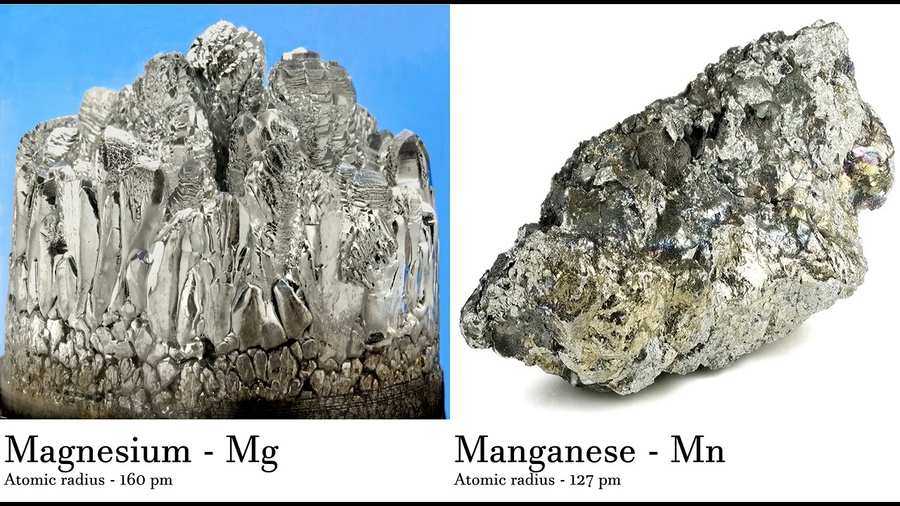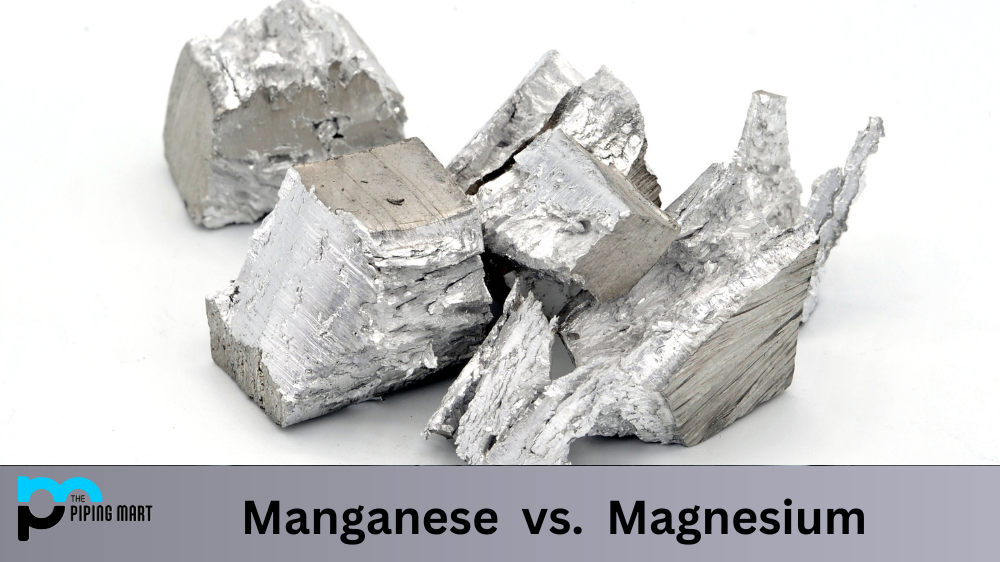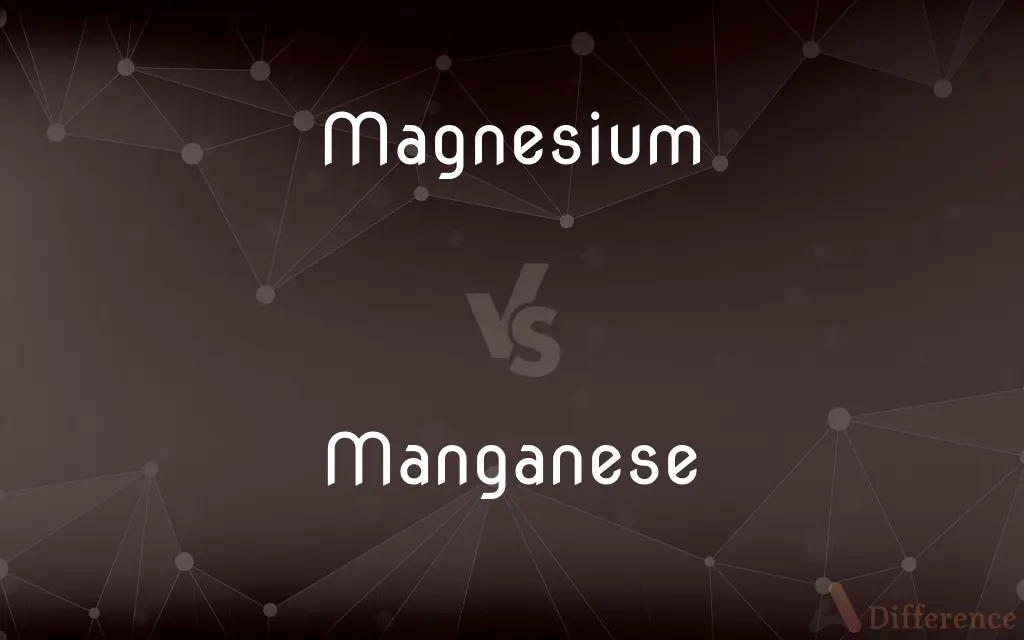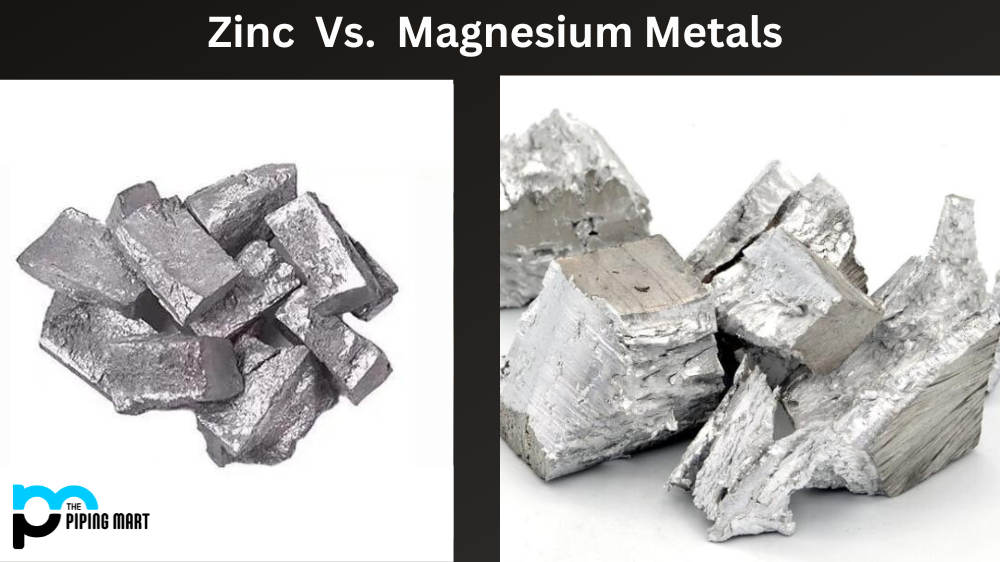What Is The Difference Between Manganese And Magnesium
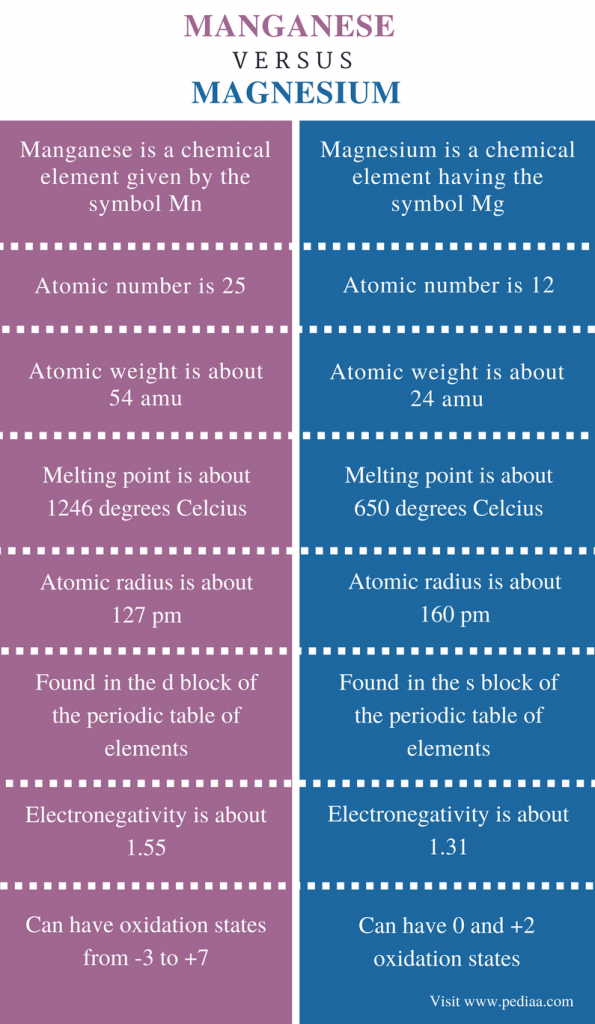
Manganese and magnesium, often mistaken for one another due to their similar-sounding names and roles in biological processes, are in fact distinct elements with unique properties and functions. While both are essential minerals involved in various physiological activities, understanding their differences is crucial for informed dietary choices and a comprehension of their individual impacts on health.
This article will delve into the key distinctions between manganese and magnesium, exploring their chemical properties, dietary sources, biological roles, and potential health implications. Differentiating these two minerals is essential because while both contribute to overall well-being, deficiencies or excesses can lead to vastly different health outcomes.
Chemical and Physical Properties
Manganese (Mn) is a transition metal with an atomic number of 25. It is a hard, brittle, silvery metal that is essential for various enzymatic reactions and physiological processes.
Magnesium (Mg), on the other hand, is an alkaline earth metal with an atomic number of 12. It is a relatively soft, silvery-white metal that is the eighth most abundant element in the Earth's crust and is vital for numerous biological functions, according to the National Institutes of Health (NIH).
Dietary Sources
Manganese is widely distributed in plant-based foods. Good sources include whole grains, nuts, legumes, tea, and leafy green vegetables.
According to the Food and Drug Administration (FDA), the amount of manganese absorbed from food varies widely. Magnesium is also found in a variety of foods. These sources include green leafy vegetables, nuts, seeds, whole grains, and legumes.
Dairy products also contribute to magnesium intake. Water, especially hard water, can also be a source of magnesium.
Biological Roles
Manganese is a crucial component of several enzymes, acting as a cofactor in various metabolic processes. It plays a role in bone formation, wound healing, nutrient metabolism, and antioxidant defense.
Specifically, manganese is involved in the function of superoxide dismutase (SOD), a major antioxidant enzyme that protects cells from damage caused by free radicals. The NIH confirms its importance in enzyme function.
Magnesium participates in over 300 enzymatic reactions. It is vital for energy production, muscle and nerve function, blood glucose control, and blood pressure regulation.
It also plays a critical role in DNA and protein synthesis, as highlighted by the Mayo Clinic. Magnesium is essential for maintaining healthy bones and a regular heartbeat.
Deficiency and Toxicity
Manganese deficiency is relatively rare in humans, but it can occur in individuals with limited dietary intake or impaired absorption. Symptoms may include impaired growth, skeletal abnormalities, and altered glucose metabolism.
However, excessive manganese intake, primarily through inhalation in occupational settings such as mining or welding, can lead to manganism, a neurological disorder with symptoms similar to Parkinson's disease. According to the World Health Organization (WHO), strict occupational safety measures are essential to prevent manganese toxicity.
Magnesium deficiency, also known as hypomagnesemia, is more common than manganese deficiency. Symptoms can include muscle cramps, fatigue, irregular heartbeat, and high blood pressure.
Risk factors for magnesium deficiency include poor diet, certain medications (e.g., diuretics, proton pump inhibitors), and conditions like alcoholism and malabsorption syndromes. The American Heart Association emphasizes the role of magnesium in cardiovascular health, highlighting the risks associated with deficiency.
Magnesium toxicity from dietary sources is rare because the kidneys efficiently excrete excess magnesium in healthy individuals. However, high doses of magnesium from supplements or medications, particularly in individuals with kidney problems, can lead to symptoms like diarrhea, nausea, and muscle weakness.
Health Implications
Manganese has been studied for its potential role in bone health and prevention of osteoporosis. Some research suggests that adequate manganese intake may contribute to bone density and reduce the risk of fractures.
Additionally, its antioxidant properties suggest a potential role in protecting against chronic diseases like heart disease and cancer, though more research is needed. The National Osteoporosis Foundation recognizes the importance of minerals, including manganese, for bone health.
Magnesium has been extensively studied for its role in cardiovascular health. Research indicates that adequate magnesium intake may help lower blood pressure, reduce the risk of heart disease, and prevent stroke.
Furthermore, magnesium plays a role in blood sugar control and may improve insulin sensitivity in individuals with type 2 diabetes. Studies have also explored its potential benefits in managing migraines and improving sleep quality. According to a study published in the Journal of the American College of Nutrition, magnesium supplementation can improve insulin sensitivity.
Conclusion
While both manganese and magnesium are essential minerals, understanding their distinct properties, sources, and functions is crucial for maintaining optimal health. Manganese primarily functions as a cofactor in enzyme reactions and supports bone health and antioxidant defense.
Magnesium, on the other hand, plays a broader role in energy production, muscle function, and cardiovascular health. Awareness of the dietary sources of each mineral and the potential risks of deficiency or excess is key to making informed dietary choices and promoting overall well-being.

